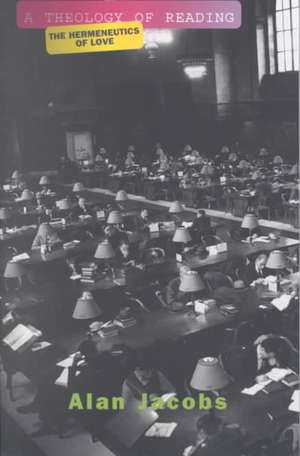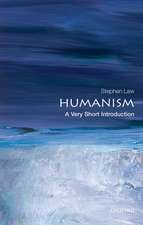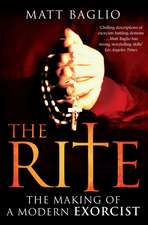A Theology Of Reading: The Hermeneutics Of Love
Autor Alan Jacobsen Limba Engleză Paperback – 28 noi 2001
| Toate formatele și edițiile | Preț | Express |
|---|---|---|
| Paperback (1) | 408.92 lei 6-8 săpt. | |
| Taylor & Francis – 28 noi 2001 | 408.92 lei 6-8 săpt. | |
| Hardback (1) | 1000.27 lei 6-8 săpt. | |
| Taylor & Francis – 28 aug 2019 | 1000.27 lei 6-8 săpt. |
Preț: 408.92 lei
Nou
Puncte Express: 613
Preț estimativ în valută:
78.26€ • 84.97$ • 65.74£
78.26€ • 84.97$ • 65.74£
Carte tipărită la comandă
Livrare economică 22 aprilie-06 mai
Preluare comenzi: 021 569.72.76
Specificații
ISBN-13: 9780813365664
ISBN-10: 081336566X
Pagini: 196
Dimensiuni: 152 x 229 x 13 mm
Greutate: 0.31 kg
Ediția:1
Editura: Taylor & Francis
Colecția Routledge
Locul publicării:Oxford, United Kingdom
ISBN-10: 081336566X
Pagini: 196
Dimensiuni: 152 x 229 x 13 mm
Greutate: 0.31 kg
Ediția:1
Editura: Taylor & Francis
Colecția Routledge
Locul publicării:Oxford, United Kingdom
Cuprins
Prelude -- Contexts and Obstacles -- The Illuminati -- Love and Knowledge -- Transfer of Charisma -- Love and the Suspicious Spirit -- Quixotic Reading -- Kenosis -- Two Charitable Readers -- Justice -- Postlude
Descriere
Through theological reflection interspersed with readings of literary texts, this book provides an elusive quarry—the charitable reader. It is a meaty meditation on absolutely central issues in serious reading, and its specific examples give a sufficient guide and impetus to a willing reader.
Notă biografică
Alan Jacobs is professor of English at Wheaton College in Illinois. He is the author of What Became of Wystan: Change and Continuity in Auden's Poetry, A Visit to Vanity Fair and Other Moral Essays, and many essays of literary and cultural criticism. He is the recipient of grants from the National Endowment for the Humanities, the Pew Charitable Trusts, and Theological Horizons.








